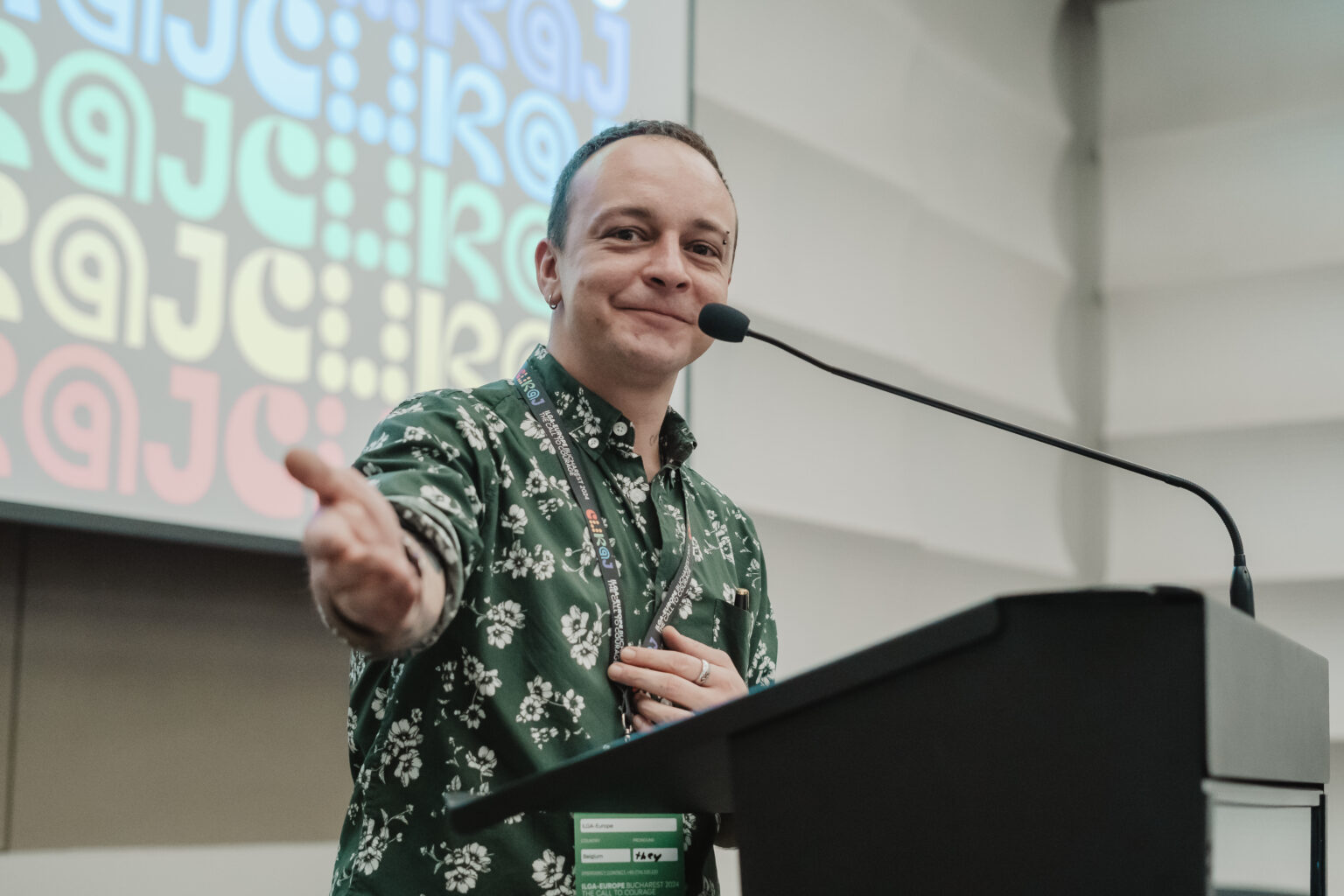The challenges and triumphs for the LGBTI movement in 2025

ILGA-Europe’s Executive Director Chaber shares insights into the movement’s direction, priorities, and how we can collectively move forward.
Q: Where do you see the LGBTI movement heading in 2025?
A: The past few years have shown how challenging these times are for the LGBTI movement, yet they’ve also revealed our community’s remarkable ability to adapt and persevere. We’re facing increased opposition, attacks on rights, and instrumentalisation in politics. However, there is hope in how the movement builds alliances—both within and beyond—and its capacity to engage underrepresented communities.
Many organisations are working tirelessly to shift societal attitudes and foster meaningful connections. These efforts to unite and inspire, after years of disconnection caused by the pandemic and conflicts, are the triumphs we can expect this year.
Q: What do you think the movement needs to focus on in 2025?
A: From the vantage point of an organisation that serves the movement across 54 countries, the diversity of needs and priorities is vast, so we cannot list or prescribe what groups and organisations should focus on. The issues that are prioritised locally are prioritised because organisations on the ground know best how to reflect the needs of their communities. And each of them, regardless of whether they’re organising prides, supporting communities with services, advocating with their governments or doing any other thing, plays a crucial role in the ecosystem. But an interesting question is on the broader themes that many organisations wish they had more capacity to address. These include fostering intersectional approaches, engaging underrepresented communities, combating disinformation, and building alliances across movements.
This shows it’s vital to have dedicated, flexible funding to enable organisations to meet these challenges effectively. Unfortunately, resource cuts across the region make these goals harder to achieve, so increasing organisations’ abilities to adapt and deliver in these circumstances will be a key point for the year and beyond.
Q: What is ILGA-Europe’s role in achieving these goals?
A: ILGA-Europe plays three key roles:
- Resource mobilisation: With funding cuts from governments and private philanthropy, we must advocate for sustained investment in LGBTI movements.
- Agenda-setting: It’s crucial to influence institutions and governments to ensure policies address the needs of LGBTI communities and empower civil society.
- Thought leadership: We’re prioritising developing strategies and capacities in areas that have not had enough attention paid to them but will be core to enacting change in the future, such as social acceptance, socio-economic justice, and emerging fields like AI. Our role is to explore and provide tools for organisations to engage with these issues.
Q: What challenges does the movement face, and how can they be tackled?
A: Insufficient political will remains a significant barrier. Many governments believe they’ve already achieved enough in terms of LGBTI rights, while others are actively rolling back protections. Anti-rights initiatives, such as anti-LGBTI propaganda laws and restrictions on foreign-funded organisations, are spreading.
To counter these, we must galvanise political will and mobilise governments and institutions to stand against such measures. It’s equally vital to educate and engage the public, building comprehensive advocacy and alliance strategies.
Q: What policy trends concern you most for 2025?
A: We’re deeply concerned about continued rollbacks on trans and non-binary rights and the spread of anti-LGBTI propaganda laws. These measures often coincide with anti-democratic initiatives, such as targeting foreign-funded organisations under the guise of transparency.
Such trends stem from the manipulation of public opinion and polarisation. They require advocacy and public engagement to counter false narratives and safeguard democracy and human rights.
Q: Which partnerships are most critical for ILGA-Europe in 2025?
A: Attacks on LGBTI rights are not only about silencing LGBTI people, they are often part of broader efforts to undermine democracy and target other marginalised groups, such as women and migrants. Our partnerships must reflect that all of us are at risk, and continue extending beyond the LGBTI movement to include organisations representing the interests of other groups. What is at stake is democracy and the rule of law, and through that the freedoms of people.
Q: What is your personal goal as Executive Director for 2025?
A: My priority is to ensure ILGA-Europe becomes more agile and adaptable. With the funding cuts across the region we will not double our resources, but the needs will increase, and we must find ways to offer faster and more tailored support to diverse groups and organisations. It’s about staying ahead of the curve and continuing to serve the movement effectively.
Q: What is your message to the LGBTI community as we start the year?
A: In these challenging times, we need to redefine success and celebrate even the smallest wins. Every act of visibility, every partnership, and every step forward is a victory. Together, we’re part of a larger ecosystem of change.